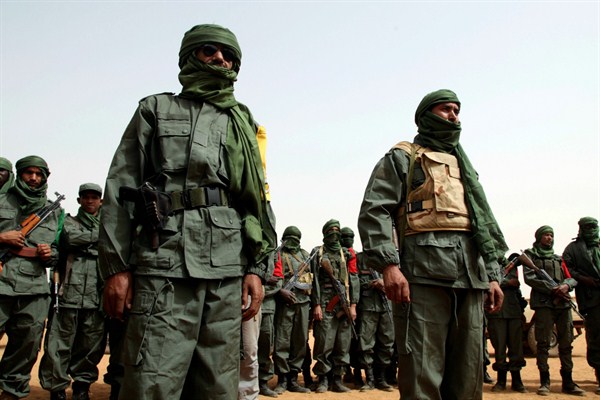Ethnic violence in central Mali is the latest manifestation of the chronic insecurity that has prevailed for the better part of a decade. But even as bullets continue to fly, officials have backed a range of initiatives—from disarmament to criminal trials—to move on from the Malian conflict.
BAMAKO—On a Monday morning last June, toward the end of the fasting month of Ramadan, Amadou Barry, a 55-year-old cattle herder and member of the Fulani ethnic group, noticed smoke coming out of a nearby village. It wasn’t long before he registered the sound of gunshots—a telltale sign that a militia attack was underway. In a matter of hours, the village, Gueourou, had been turned to ashes, like so many others in the region of Mopti, in central Mali.
After the bloodshed ended, Amadou and other residents of his village went to bury the bodies; there were 16 of them, he remembers. It wasn’t the first time he had buried his neighbors. Just a few days before, he had performed the same service when a different village a few kilometers north had been attacked, leaving three people dead.

